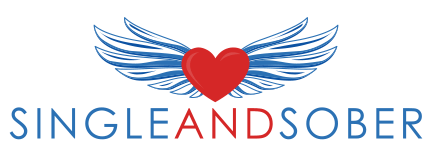
How do we take care of ourselves? ~Photo by Regina Walker
“Self-care” as well as “wellness” have become incredibly popular terms recently (almost catch phrases) but what do they actually mean? I guess, taken literally, it is quite simple – how do we take care of ourselves? I am all for long baths and essential oils (I revved up my diffuser before I started writing this!) but I think it is important to go a bit deeper.
What, in particular, is self-care for someone who is dealing with an addiction or is recovering from a period of addiction? How do we learn to take care of ourselves if we never have before? What if we grew up in environments where we were not taken adequate care of and therefore not taught how to take proper care of ourselves? An addiction can be seen as an act of harming oneself through the repetition of a self-destructive behavior that can often begin as a misguided attempt to provide oneself with solace and soothing. How does a neglected or abused child learn to be an adult who takes care of themselves? What if use of a substance or another person to the point of destruction serves the purpose of muting a deep pain? At least at the beginning or for a period of time the behavior serves an essential purpose. In a way that is self-care but not the type that will provide long-lasting relief or on-going health. In my many years of working with people with addiction and mental health issues, I have heard variations of “I just want to be healthy, I want to be like everybody else.” But what does that mean and how do we get there? And is being “like everybody else” truly a healthy goal?
There are certainly some important basic self-care techniques that are universal. It is important to nourish our bodies with healthy food, get adequate rest, exercise our physical bodies and challenge our minds.
Self-care is often not picture worthy, Instagram moments. It is going to the doctor and addressing medical and mental health issues. It is about creating a budget and paying bills and coming up with a way to get rid of debt. Self-care means feeding your body healthy food and exercising and sleeping all in appropriate measure. It is finding a few trustworthy people who support and care about you so isolation does not become another obstacle to health. For many people, creating a routine can be one of the best ways of expressing self-care. Routine can help when the procrastination monster shows up. When “I will do it tomorrow” becomes the next day, the next week, the next month, never.
Staying balanced with breathwork
Author Amy Dresner (Her first book, “My Fair Junkie: A Memoir of Getting Dirty and Staying Clean” was released by Hachette in September of 2017. It has garnered rave reviews by critics and readers alike for it’s dark humor, deep insights, and brutal honesty) shared her thoughts on wellness in recovery: “As somebody who was self-destructive for so long, it’s easy to avoid or abandon self-care, especially when I feel stressed or upset. Some of the things I go to now to recharge and stay balanced are breathwork, cheap massage, and napping. Meditation is great if you can stick to a routine (which personally I’m not great about). Exercise has totally fallen off my radar unfortunately. I really try to make sure I’m eating well (and enough) as well as drinking lots of water. I’m a big one for mani/pedis (Hey, cut me some slack I live in LA). Honestly, sometimes it’s as basic as “Amy, please brush and floss the teeth you still have after your meth habit before you go to bed and clean your night guard.” “
One of my favorite things about Dresner is her humor. Humor itself can be seen as a form of self-care and a mark of resiliency. Being able to find the humor in certain tragedies can be an extremely effective tool to survive difficult times without self-destructing.
And speaking of breathwork, Nathaniel Hodder-Shipp (aka Nathaniel V. Dust) is a person in long-term recovery and a certified counselor and healer living in Los Angeles, CA. His work has helped augment thousands of clients’ recovery from substance use disorders, trauma, and eating disorders. His focus is quite simply on the breath. He told me,” Health and wellness is a vital, though often overlooked, aspect of a successful recovery program and it’s easy to forget that something as simple as breathing correctly can make a massive impact. Breathing gives us active control over our autonomic nervous system, allowing us to combat depression, anxiety, and even symptoms of PTSD, while making our stress responses more manageable.”
How often have you gotten angry when someone has suggested “just breathe” when you are feeling particularly stressed? Ironically, most of us will hold our breath or take shallow breaths when we are anxious. This practice actually increases our sense of anxiety. As simple as the automatic action of breathing is, it has a profound effect on our overall physical and mental health.
Self-care is an act of self-love
Patty Powers is a certified recovery coach and writer living in New York City
I asked her what her thoughts were about self-care both personally and for the individuals she works with.
“When I work l with clients I tell them not to trip on the “spiritual nature” aspect of 12-Step recovery by over-thinking it. Self-care is an act of self-love. It’s spiritual because self-care is the opposite of self-destruction. No matter what our head says, these actions are proof that we believe we matter. Start out with the basics – sleep, nutrition and exercise – to get immediate results. These help lower stress and depression. There are a lot of things you can add to the basics to increase feelings of well-being. I try to switch up my workouts so I don’t get bored. Luckily I belong to a gym that offers a ton of different classes – from yoga to kickboxing to dance to old-school aerobics. Sometimes I’ll just do a yoga video at home and hit the gym for cardio or free weights or the pool. I use my bicycle for both transportation and leisure. When I injured myself and couldn’t exercise for several months anxiety began creeping back in. There was a drop in my energy and I had difficulty staying asleep. Not being able to do it drove home how important exercise was to my mental health.”
Powers continued, “My self-care looks different than it did years ago. I meditate for twenty-minutes twice a day and give myself reiki or do an energy balancing exercise. I get outside for fresh air every day – and I don’t mean “walking to the store”. I try to spend time in the park, or take a night walk, especially when the moon is out – rain or snow. I really try to keep my phone in my pocket and pay attention to whatever nature I can find in the city. I always assume people who live outside of cities get a ton of fresh air but I’ve discovered that a lot of people drive into their garage and spent the rest of their leisure time sitting at their computer, Playstation, or TV. I encourage getting outside as part of self-care and stress management. I believe balance is everything. It’s so easy to set up a schedule that’s “all or nothing” which always has a psychological and physical crash and burn. Find balance between quiet time alone and socializing, a balance between time spent alone, with a romantic partner, and with friends. A balance between work and play. I’ve also discovered that it’s important to create balance between seriousness and laughter. For years I’d spend the winter months reading heavy existential novels without realizing I was slipping into the dark well of seasonal affective disorder. My solution was not to give up literature but to throw in stand-up comedy. Balance between seriousness and laughter. My self-care practices have continually evolved over the past 29 years because I believe boredom is optional.”
My self care is one-part physical and two parts spiritual
Claire Rudy Foster is the author of Shine Shine Shine, forthcoming from Unbound and in long-term recovery.
She shared some of her thoughts on self-care and wellness in recovery with me.
“My self care is one-part physical and two parts spiritual. I think there’s a lot to be said for hot baths, long walks on the beach, that kind of thing, but at some point I can’t just romance myself into a better state of mind. As I’ve stayed in recovery, I notice that I’m less likely to neglect my basic needs, like rest, water, and exercise.”
For many new to recovery, acquiring those basic skills takes time and is the primary goal for early sobriety. As time in recovery progresses, the nature of self-care also evolves. Foster continued:
“These days, my self care goes beyond the basics. I need release, of one kind or another. I’m not an adrenaline junkie—I have a friend who goes bungee jumping and skydiving to scratch the itch. For me, self care looks like amazing, toe-curling sex with my partner. I love letting go with him. Sex feels like a celebration of my body, his, and our connection. It helps me stay grounded, as well, and experience my physical self in a new, intimate way. Spiritually, I need more than yoga and meditation. My spiritual self care is probably more important than the physical stuff, at this point in my life. I engage in acts of service, helping others. When I pray in a group, or pray for someone else, that makes me feel connected to a higher purpose. It’s critical for me to feel like what I do matters—so I make a real effort to do things that I know matter. I give my time to advocacy, recovery groups, and other direct action groups like syringe exchanges.” Foster concluded, “Self care, to me, basically means participating in my own life—to the very fullest.”
Self-care is not about imitating what others are doing on Facebook or Instagram. Often the negative effects of social media outweigh any potential benefits and actually increase the sense of isolation the “social” part of social media was meant to combat. There is no one formula for self-care and wellness but the major ingredients; care of the mind, body, and spirit are key.
 Regina Walker, LCSW, BCD, CASAC is a psychotherapist, writer, and photographer in NYC. She can be reached at Reginaannwalker@gmail.com
Regina Walker, LCSW, BCD, CASAC is a psychotherapist, writer, and photographer in NYC. She can be reached at Reginaannwalker@gmail.com

